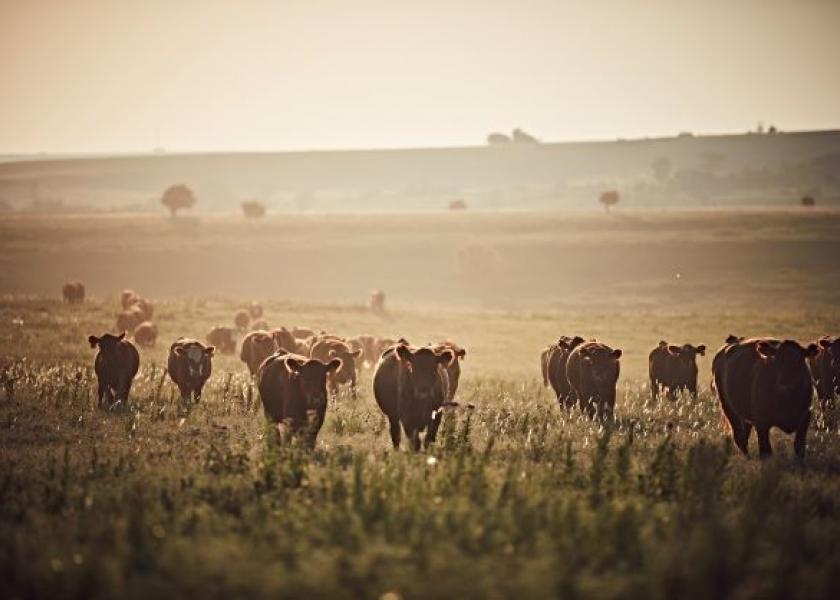Deworming in Times of Drought

When it comes to raising cattle, producers do everything within their control to ensure a safe, healthy and productive herd. So, what about the factors that can’t be controlled?
The challenge
“Drought has the ability to make any kind of worm infection more severe because it puts additional stress on the animal,” said David Shirbroun, DVM, Boehringer Ingelheim. “Cattle may already be stressed due to the lower volume and quality of forage available during a drought, so any kind of parasite infection is exacerbated by these conditions.”
The decreased nutrition quality could lead to a weakened immune system, reducing the level of natural protection the animal has in place to defend itself from parasites. “Once the animal is infected with parasites, the immune system is further impacted, compromising the animal’s ability to protect against any bacterial or viral diseases,” added Dr. Shirbroun.
During a drought, most living things are struggling to survive. It’s natural to assume this applies to the parasite population, but this isn’t the case. Research has shown that the survival of infective larvae within dry dung pats is enhanced by drought conditions, rather than reduced.1
In addition to the possibility of more larvae being present, Dr. Shirbroun said cattle are more likely to come in contact with larvae. “Most of the larvae are found in the lower two to three inches of grass and forage,” he explained. “This becomes a problem during a drought, because the pasture is likely getting mowed down closer to the ground than usual. With the animals grazing closer to the ground, they are more apt to pick up those larvae compared to a time with heavy precipitation.”
The solution
You may not be able to control the weather, but there are steps you can take to safeguard your herd from parasites during a drought:
• Step 1: “First and foremost, consult your veterinarian,” recommended Dr. Shirbroun. “They know your operation, they know the region and they can help you maintain success through unprecedented conditions.”
• Step 2: Pasture management. Limiting overgrazing, maintaining appropriate forage heights and rotating pastures are all ways to reduce parasite loads in your pastures and to limit the number of parasites that get ingested by the cattle.
• Step 3: Combination treatment. Commonly used cattle dewormers can be divided into two categories, depending on their chemical structure: benzimidazoles (white dewormers) and macrocyclic lactones (endectocides). Combination treatment is an approach that requires using one dewormer from each category.
• Step 4: Diagnostics. If you are wondering what kind of parasites you are dealing with or want to gauge the effectiveness of your deworming program, fecal egg count reduction testing (FECRT) is a great way to monitor parasites. Ask your veterinarian about using FECRT as a diagnostic strategy.
No matter the weather conditions, these steps can keep parasite populations at bay and help your dewormer products stay effective for years to come.







